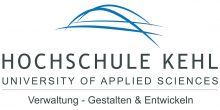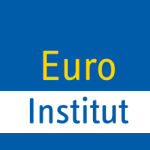Within the activities of the Jean Monnet Center and the Chair « European Narratives of the Border » of Jean Monnet Law, the first edition of Castle Talks 2023 was held on March 1 and 2, 2023.
Split between the Hochschule de Kehl and the Château de Pourtalès, it brought together seventy researchers, students and entrepreneurs. The conferences were numerous and the exchanges varied: cross-border health, Euroscepticism, cartopology or NASA programs and Catalan regionalism.
Cet article est également disponible dans la langue de Voltaire !
First serie of disputatios (11h-12h30)
The disputatio between students and researchers was threefold. Each session lasted about an hour and a half, during which 3 groups of students (from the Centre of European Studies of the CEPA foundation, of the Hochschule Kehl and Sciences Po Strasbourg) presented a subject submitted few months before the castle-talks. They each received feedback, and the discutant was in charge of letting the audience take part of the discussion that followed the presentation on the subject. Some subjects ignited lots of reactions from the public, such as the presentation on regionalism and cultural borders in Europe.
Working group 1: East and West divide in Contemporary EU
The first working group from the Center of European Studies of the CEPA and Sciences Po Strasbourg. Students emphasized that there is a huge socioeconomic gap between eastern and western europe, that wasn’t filled by their accession to the EU since the 2000s. Various factors can be considered, such as the fact that 31.4% of Bulgarians are not able to afford a meal with meat or chicken. There are also differences in the perception of minorities such as the Roma population, but also muslims and jews, who are more unfavorably perceived in East Germany than in the former West Germany. Students’ prospects are that Eastern Europe has to step up their governing institutions and economic policies, which should be accompanied at the EU level by a better redistribution of wealth thanks to internal migration notably. Michael Frey, discussant of the presentation, asked whether the Covid crisis was to be considered as a potential disruptive of the border between eastern and western europe. The crisis, which drastically reduced the mobility within the EU, showed how interlinked eastern and western Europe are.

Working group 2: Nationalism in Europe
The second group presented some cases of nationalism in Europe. First, they stressed how the government of Giorgia Meloni opposes migration within the Mediterranean sea, even creating tensions with France. Giorgia Meloni also created political, ideological, water and economical borders. In Hungary, Orban is said to have stated that “Diversity is not a virtue. We do not want to become diverse and get mixed up with others. Migration is dangerous and bad.” Nationalism in Hungary manifests in so that one can no longer become hungarian but by proving that one has hungarian roots. In Hungary, helping non ukrainian asylum seekers is even criminalized. In France, the support for Emmanuel Macron between 2017 and 2022 has been stable, while the support for Marine le Pen was increasing (especially in the south and the west of the country). For the UK, the Windsor framework EU-UK (negotiated days before the castle-talks happened) ensured smooth trade and no Irish sea border for the North Ireland area, this is an example of sovereignist rationale that passed that affects tensionful areas. Daniela Braun, discussant of the presentation, stressed that for the first two cases (Hungary and Italy), migration is the most important leverage for these parties. The audience also stated that borders can be positive, such as the (invisible) internal border between Catalonia and the rest of Spain.

Working group 3: Borders in times of crisis
The third working group focused on borders in Europe in times of crisis. Students explored the concepts of integration, borders, and national identity. They found that crises had some positives, like bringing closer central banks and therefore facilitating economic cooperation, but it also stressed that inhabitants of the border areas are living in the same population basin, encouraging cross-border protests in times of crisis. When European nation-states began to react nationally to the covid crisis, vaccine nationalism and nationalist rhetoric on health equipment reemerged to the detriment of local cross border cooperation. This is because states are considered to have a moral obligation to protect the health of their citizens, and are focused on their population (no vision beyond the border), and therefore adopt different policies according to the different perceived national interest.

Second serie of disputatios (13h30-15h)
After an hour-long lunch that allowed for students from both the CEPA, Sciences Po and the Hochschule to meet each other and discuss their morning’s presentations. The session resumed at 13h30, chaired by Jörg Röber from the Hochschule Kehl.
Working group 4: Cultural Borders in Europe
Students from the Center of European Studies (CEPA), began their presentation emphasizing that European identity is embedded in an “onion” scheme, and that are nested in various layers (European, national, regional, local). Students therefore chose to present cases of cultural borders in Europe, of countries that are outside the EU. Firstly, in Norway, identity is embedded in Europeanness due to the geographical position of the country, but Norwegians feel not European, but rather Nordic (just like for Iceland). The case of the United Kingdom is peculiar, not only because of its former membership to the EU, but because the debate over Brexit was led by sovereignists putting forward the argument of “taking back control” of their land. The United Kingdom is however divided internally along cultural lines, such as with Scotland, Northern Ireland, Scotland, England, the Crown Dependencies, etc. Switzerland has been at the core of Europe, and the construction of the state happened not along national (uniformed culturally) lines, since the country is divided between the German speaking north and east, the French speaking west and the Italian south (with Romansh in the south east). About 16% of the Swiss population are European citizens living in Switzerland, and Switzerland is the 4th largest trade partner of the EU, making trade and cooperation utmost important. In other terms, about 24% of the Swiss population do not have one of the four national languages as their mother language, as there are important minorities such as Portuguese, Serbian, Albanian, Spanish, etc.). Fabienne Schimek, from the Euroinstitut in Kehl, discussant for this fourth working group, thanked the students for their presentation of these case studies, and asked what it meant to feel European, and, by extension, what is culture (arts, a common sense of belonging, a modification of an inherited behavior). The European identity is not conceptually identical to other national identities, since it is more based on values. Finally, on a more conclusive tone, the audience stressed how considering identity as an onion is relevant for the case of Europe.
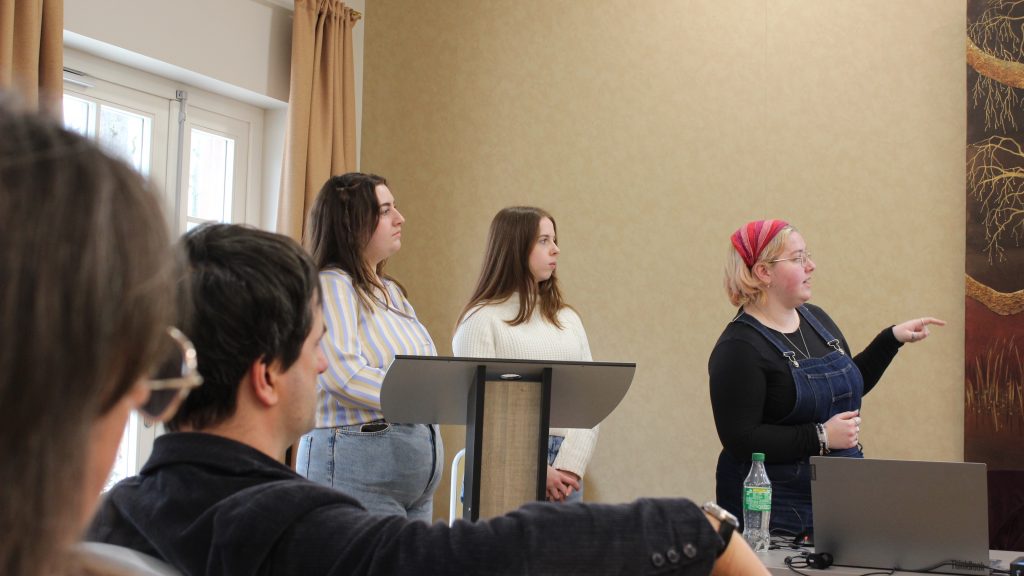

Working group 5: Europe without borders and Human Rights
The fifth working group analyzed how mechanisms that protect human rights were applied in Europe. After recalling that there were 300 000 asylum requests rejected within the EU in the first half of 2022, students from the Center for European Studies stated that internal borders within the EU and the Schengen area have also been strong stoppers of migration flows since the 2015 migrant crisis. The crisis was deepened by several factors, such as the system of parallel competences that allows for states to pursue their own policies in terms of migration, and the coexistence of too many actors that are motivated by different policies and have different interests and mindsets. Since the Dublin Reglement, the first state that migrants enter is the one who registers their asylum demand, and is thus their welcoming country within the EU. This causes European countries that are on the migration routes to be way more exposed to a sizable influx of migrants, reinforcing resentment across the EU as a more balanced welcoming policy is not likely to be developed anytime soon. Discussant Valeria Fargion remarked that responsibilities between EU members were diffused and hard to clearly identify. The EU is indeed responsible only for the treatment of the asylum seeker once he is on the territory, not for other kinds of refugees and migrants. At the end of the day, only member states decide how many migrants can stand on their soil.
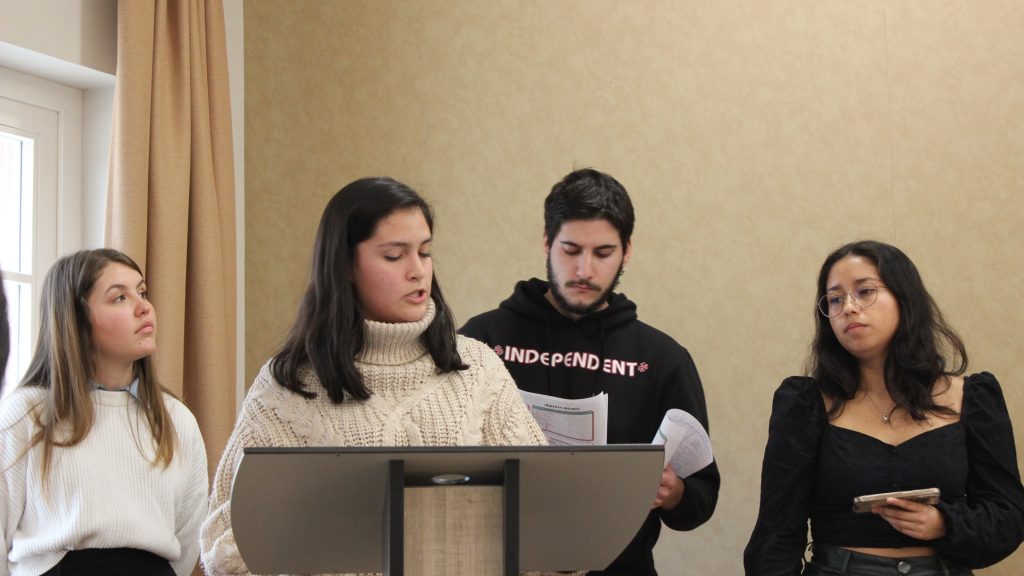
Working group 6: Erasmus+
Erasmus is the acronym for European Region Action Scheme for the Mobility of University Students, and was launched in 1987. Its goals are to promote studying abroad, leading to cross-national work opportunities and thus making the youth more likely to get a job. 90% of Erasmus students improve their ability to work with people from different cultural backgrounds, and 70% say that they have a better understanding of their goals after an Erasmus+ exchange. Erasmus is believed to break economic divides between EU member states concerning higher education (by promoting collective mobility), and strengthen European identity and a sense of belonging to the EU. Recently, Erasmus benefited from a higher budget for linguistic and refugee support, as well as more support for youth projects. The DiscoverEU programme, launched in 2018, provides an informal learning opportunity for non-EU students. To sum up, Erasmus is a catalyst and a symbol of European integration. Michael Frey (Hochschule Kehl), discutant, recalled however that a lot of non-EU countries are eligible for Erasmus funding.
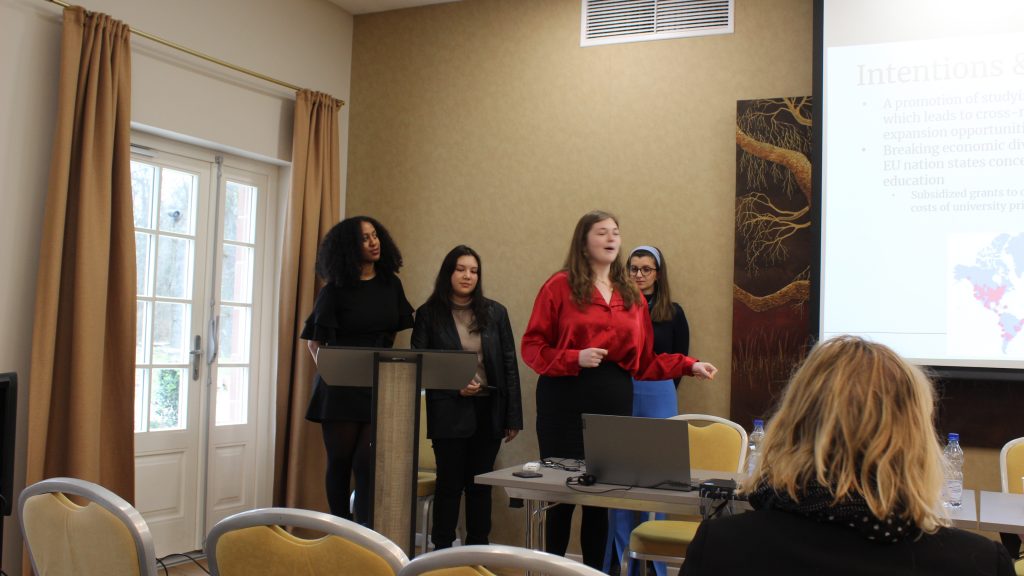
Third serie of disputatios (15h30-17h)
Working group 7: EU enlargement
Students of the Center for European Studies presented to their discussant Louise Weber from the Euroinstitut of Kehl that there are 2 limits to EU enlargement. The first one is political limits, notably the article 49 TEU and the Copenhagen criterii. The second is the cultural limit as the matrix for European culture has created a system of European values. This is why despite trying to westernize, Turkey never followed through their accession procedure to the EU, this added to economic and political problems under the Ergodan rule. Albania also tries to join the EU, as it is modernizing both its economy to tank accession to the single market, and their administrative system to adapt to the Common Foreign and Security Policy of the EU. Albania however lacks rule of law, transparency and a corruption-free administration, hindering their chances to access EU membership. Finally, on a more cultural tone, Albania has a mostly muslim population, which constitutes a major cultural difference with the rest of the EU, making it unlikely that Albania joins anytime soon.
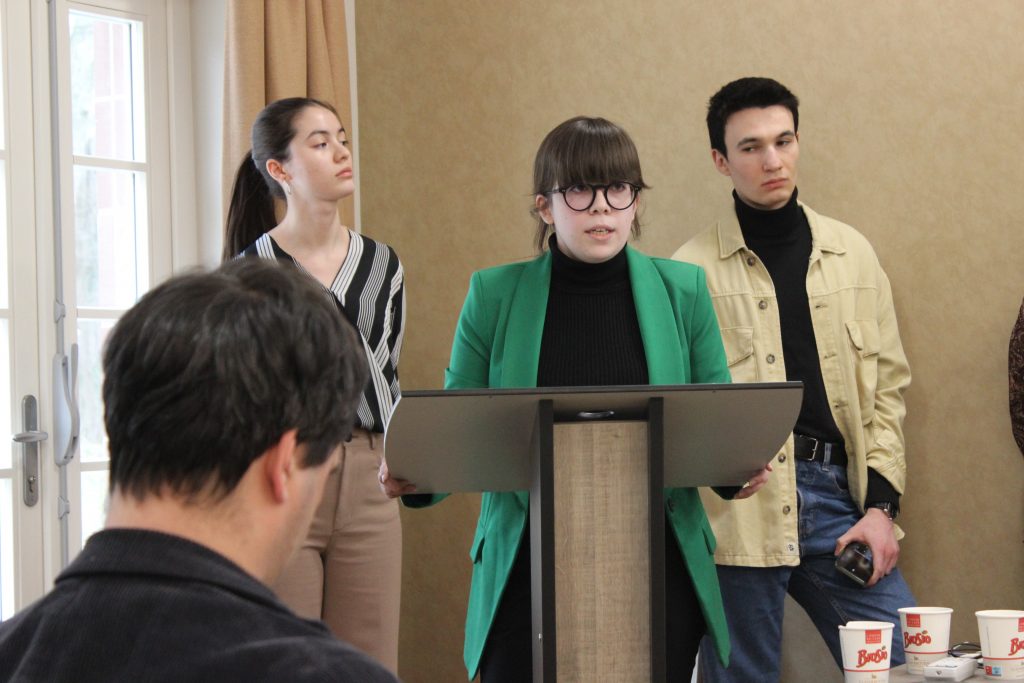
Working group 8: Regionalism in the EU
Political and cultural borders shape Europe, creating a diverse landscape. Political and cultural borders are not necessarily following the same line however, leading to resentment in some European regions. This is the case for Scotland and Catalonia, where calls for independence encounter a somewhat large support over the years. The perception of borders by the European youth is discussed as for many, borders do not exist and people are not accustomed to them anymore. The perception of political borders is not the same between Finland and France, for instance. The catalonian crisis for independence have however silenced the calls for independence, while the success of the Scottish National Party can be explained lately by the various crises experienced by London. Brexit notably was lately one of the main drivers of the call for an independent Scotland, as the majority of Scots voted for remaining in the EU. A long exchange with the audience and Jörg Röber (Hochschule Kehl) followed suit, for instance on the role of the Committee of the Regions as a loudspeaker for regionalist elected officials, or on the meaning of the motto “Europe of the nations” vs. “Europe of the regions” opposing a state-based approach to European integration.
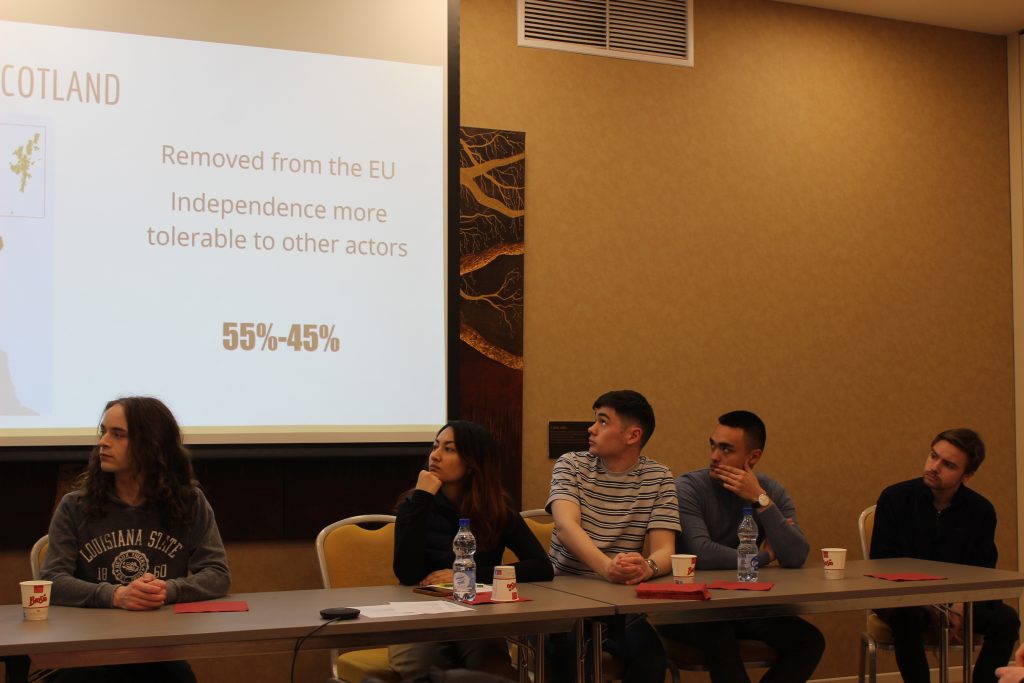
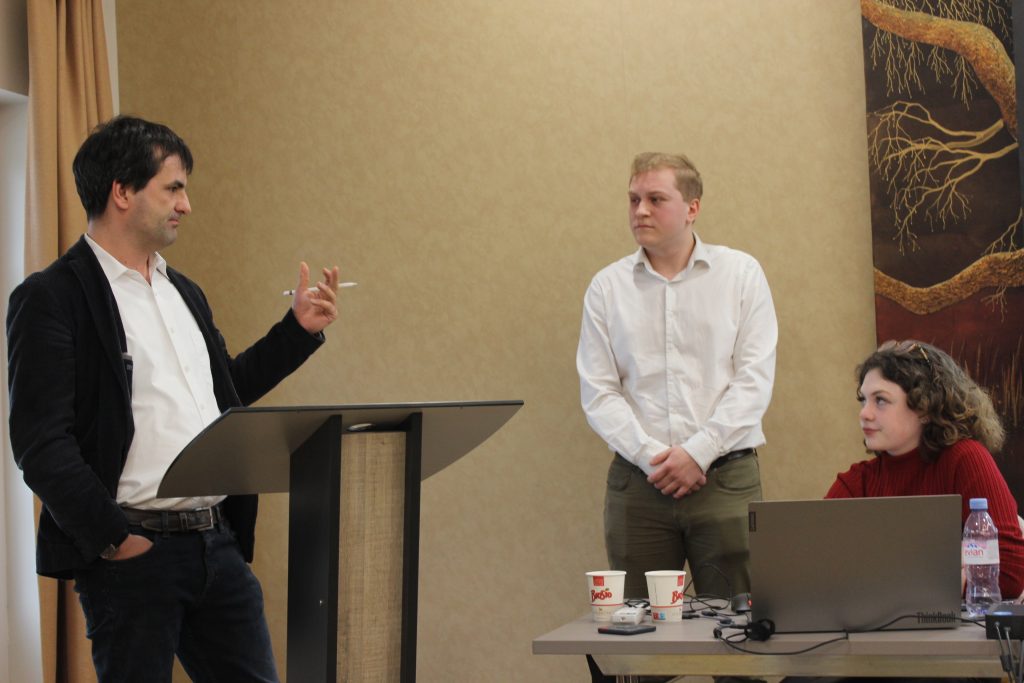
Working group 9: Video capsules on Covid
4th year students from Sciences Po Strasbourg had made videos on the theme of border barriers in times of covid. However, the video was inaudible. Students present at the castle-talks who participated in this project were asked to present their work nonetheless. They analyzed reactions from various EU member states to crises at border areas. The group that studied the Covid crisis simulated a meeting between national authorities, exchanging about the reaction to adopt, ending the conversation on the will from both sides to close the border (rebordering). The group on the economic crisis stressed the political backlashes for Europhilia of the crisis. The third group worked on the terrorist crisis, with the putting into question of Schengen as the emergency state in France instored back controls at the border, but Schengen was also reconsidered in Belgium, the Netherlands and Germany. The last group simulated a meeting among representatives from several member states, and a refugee who asked questions in order to understand the different legislations regarding asylum seekers in various EU member states.


